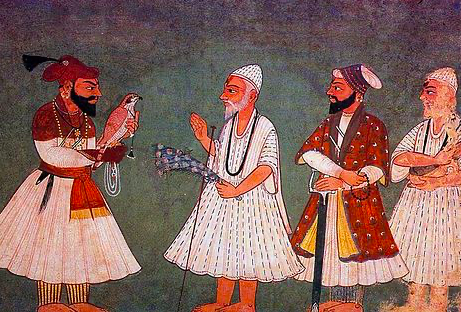Sufism In India – Why It Carries A Bloodied History (Part 2)


Before going into the continual history of how Sufism aided the invader led bloodbath in India, let us take a peek into how and when Sufism came into being. According to a book called “Hindusiyat wa Tasur” by Abu Bakr Muhammad Zakaria, the first person to use the word Sufi was Abu Hashem al-Kufi (2nd century after Islam). Ibn Taymiyya said in his Majmual Fatwa that Basra was a center of Sufism at that time. Even before that, the Shia Muslims put their claim on Sufism by stating that it was in fact Ali Ibn e Talib who was the first Sufi. Ali was the nephew of Prophet Muhammad, and also the husband of his favourite daughter Fatima. When Kaaba was invaded by the Prophet, it is quoted that Ali was standing on the shoulders of the Prophet while they both destroyed the Murtis inside Kaaba, defacing them and attempting to gouge their eyes out. Sunni Muslims, on the other and, lay their own claim on Sufism and state that Abu Bakr was in fact the first Sufi on this land. Abu Bakr was the third person to convert to Islam after Prophet and his wife Khadija. He was the Prophet’s closest confidante, his initial financier, and the father of his most beloved child bride Ayesha. Among other things, Abu Bakr is famous for his launch of Ridda Wars post the death of the Prophet. Ridda literally means those who deny the teachings of the Prophet after examining them. These wars were aimed to curb insurgencies against Islam, and murdering all those who were leaving Islam. Sufism has its roots embedded in a faith which believes in winning over heads, and not hearts.
After the demise of Muhammad Bin Qasim, for many centuries there were no significant conversions to Islam. During the 10th and 11th century, Turkic emperor Subuktageen and then his son Mehmood of Ghazna are known for ruling parts of India. Mehmood famously attacked the temple of Somnath while his army engaged in plundering and looting and murder of innocents. It is said that every time he attacked the area, he destroyed temples and converted scores of people to Islam. It was much later in the 13th century, when the evidence of larger conversions to Islam came about.
Renowned Indian preacher and founder of Islamic Research Foundation, Zakir Naik, has always held that Islam spread in India in a very peaceful manner, and the Sufis played a positive role in bringing in all the great virtues and morals of Islam through practice and preaching. Naik writes:
“Overall, the Muslims ruled Arabia for 1400 years. Yet today, there are 14 million Arabs who are Coptic Christians, i.e. Christians since generations. If the Muslims had used the sword there would not have been a single Arab who would have remained a Christian. The Muslims ruled India for about a thousand years. If they wanted, they had the power of converting each and every non-Muslim of India to Islam. Today more than 80% of the people of India are non-Muslims. All these non-Muslim Indians are bearing witness today that Islam was not spread by the sword.”
Sheikh Yusuf al-Qaradawi, who is an Egyptian Islamic theologian based in Doha, Qatar, and chairman of the International Union of Muslim Scholars, has this to say on the matter
“…the sword may conquer lands and occupy states, it will never be able to open hearts and inculcate faith in people. The spread of Islam only occurred after a while, after the barriers between the common people of these countries and Islam were removed. At this point, they were able to consider Islam within a peaceful atmosphere, away from the disturbance of war and the battlefields. Thus, non-Muslims were able to witness the excellent morals of the Muslims…”
Dr Fazlur Rahman was a moderate Pakistani Preacher who had to leave Pakistan for his non orthodox views. What he says here gives an explanation through which a link can be created between the comment of Dr. Naik and that of Al Qardawi. He states-
“…what was spread by the sword was not the religion of Islam, but the political domain of Islam so that Islam could work to produce the order on the earth that the Quran seeks… But one can never say that Islam was spread by the sword”
Here it can be deduced that the idea of Islam spreading in a peaceful manner through Sufism is problematised to an extent, and it is held that Sufism almost always followed, or came hand in hand with the use of sword and enforced authority.
This is Part 2 of a 3-part article. Part 1 can be read here:
https://kreately.in/sufism-in-india-…d-history-part-1/
DISCLAIMER: The author is solely responsible for the views expressed in this article. The author carries the responsibility for citing and/or licensing of images utilized within the text.
